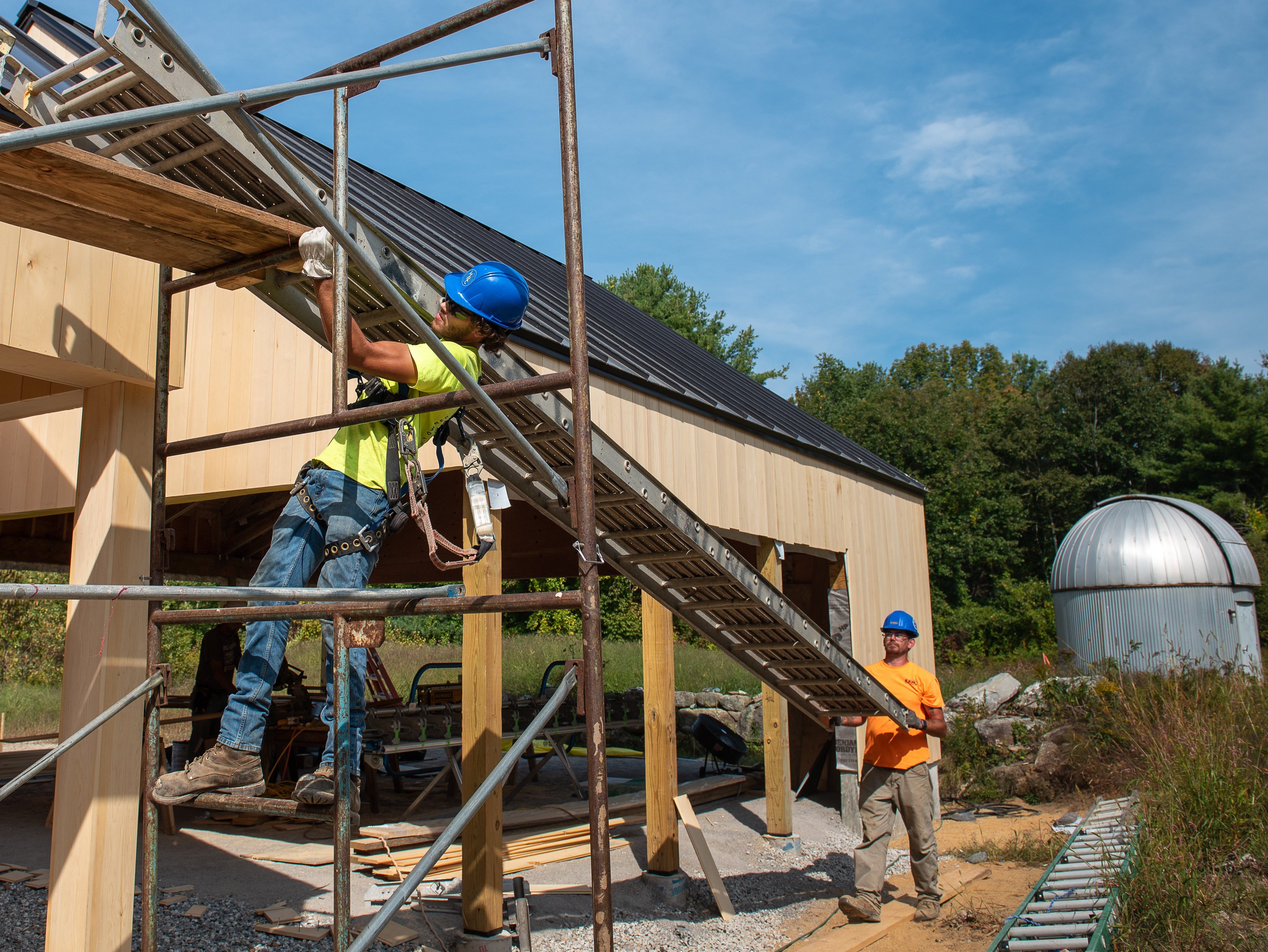
As economists nationwide watch closely for signs of a recession, some have suggested one may be approaching — or already underway — in Maine.
Mark Zandi, chief economist at Moody’s Analytics, recently included Maine in a list of nearly two dozen states that he says are “in or at high risk of suffering a recession.” That list featured every New England state, save for Vermont.
Zandi said his assessment, shared on social media late last month, was built on “where state economies are in their business cycle” based on factors like payroll, employment and industrial production, but he did not provide the full methodology.
The troubled states span coast to coast, but Zandi told the Boston Globe this week that they tend to include states with “older populations and weaker demographics.” Maine’s population, based on median age, is the oldest in the country and has been for several years.
But Maine State Economist Amanda Rector pushed back on Zandi’s assessment, saying her team was not sure how the Moody’s economist reached his conclusions.
“According to the State Economist’s Office, based on current data, there aren’t any indications that we’re currently in a recession in Maine,” Rector said in a written statement Friday afternoon. “There is a great deal of uncertainty and risk from recent federal policy changes and national/global conditions that will continue to impact both national and state economic growth, but that isn’t showing as a recession in the data as of yet.”
Employment and unemployment have both been stable in Maine, Rector said, citing data from the Maine Center for Workforce Research and Information.
Rector also pointed to an August report from the Federal Reserve Bank of Philadelphia, which analyzed several data points together and found that statewide economic activity was up 1.5% from July 2024 to July 2025, the latest month for which data is available. While that’s the highest year-over-year growth Maine has seen since 2023, it’s lower than the national average of 2.4%, according to the report.
WHERE TO LOOK
Paul Shea, a professor of economics at Bates College, said he agreed with much of Zandi’s analysis but was more optimistic — slightly. And he cautioned that some popular indicators, like the unemployment rate, do more to reflect the present than predict the future.
Maine’s economy is likely to follow the national trend wherever it leads, Shea said on a Friday morning phone call.
“I don’t really see anything overly special about Maine one way or the other. I think if the U.S. goes, Maine is going to go,” he said. “If we manage to avoid (a recession) on a national level, Maine is going to avoid one.”
Shea predicted that there’s a roughly 60% chance that the United States will fall into recession before the end of the year.
The country added 22,000 jobs in August — well below the roughly 80,000 some economists had predicted, according to data released Friday by the Bureau of Labor Statistics. Meanwhile, the unemployment rate rose to 4.3%, its highest level since 2021.
“You still have employment growing, but it’s way below what we call ‘replacement levels,’” Shea said.
Friday’s jobs report also revised figures for June, showing that the country actually lost 13,000 jobs, rather than adding 14,000, as previously reported. July job creation was revised up from 73,000 to 79,000.
Maine’s unemployment rate was 3.2% in July, the latest month for which state-by-state figures are available. That was a full percentage point lower than the national average, according to the Bureau of Labor Statistics.
Beyond the unemployment rate — which Shea called more of a real-time capture than a predictive tool — he pointed to the slowing housing market as a potential indicator of the economy to come. Nationally, average home prices are beginning to fall after shooting up during the COVID-19 pandemic, and homeowners could slow their purchasing as the equity of their homes drop, Shea said.
“So we have all that in front of us, and the same thing with tariffs: We’ve only just seen those coming into consumer prices,” Shea said. “I don’t even think the big headwinds have hit the economy yet.”
Shea said the country is in a “weird labor market,” in which many firms are hesitant to expand hiring but not yet ready to begin layoffs. He pointed to another report, issued Wednesday, that found job openings fell from 7.4 million in June to 7.2 million in July.
“At some point, it’s going to break in either direction, and they’re going to resume hiring, or they’re going to start layoffs — and then we’re in a recession,” he said.

We invite you to add your comments. We encourage a thoughtful exchange of ideas and information on this website. By joining the conversation, you are agreeing to our commenting policy and terms of use. More information is found on our FAQs. You can modify your screen name here.
Comments are managed by our staff during regular business hours Monday through Friday as well as limited hours on Saturday and Sunday. Comments held for moderation outside of those hours may take longer to approve.
Join the Conversation
Please sign into your CentralMaine.com account to participate in conversations below. If you do not have an account, you can register or subscribe. Questions? Please see our FAQs.